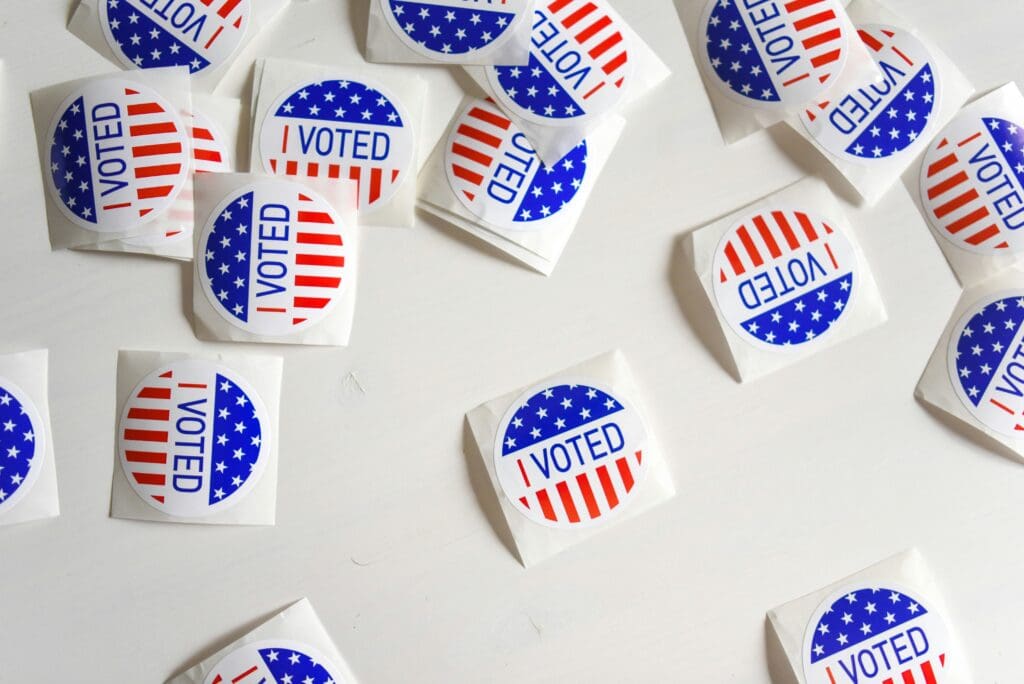With less than two weeks until New Jersey’s June 10 primary, Democratic voters have cast the majority of early ballots.
Roughly 222,000 voters have returned mail-in ballots so far, according to NJ Spotlight News, with nearly three-quarters coming from Democrats. That figure represents about one-quarter of the projected primary electorate in a year when the governor’s race is open for the first time since 2017.
Voters are choosing among crowded fields in both parties. Six Democrats and five Republicans remain in the running to replace outgoing Democratic Gov. Phil Murphy, who is term-limited.
Historically High Turnout Could Shake Things Up
In 2017, when Murphy first won the nomination, more than 786,000 people voted in the primaries. If turnout follows recent highs, upwards of 875,000 ballots could be cast this year. Analysts say turnout could exceed that if contested legislative races, particularly in Democratic districts, bring more voters to the polls.
Still, awareness remains low. A Rutgers-Eagleton Poll conducted in April found just one in four registered voters knew an election was approaching, and only 4% knew the date.
“Voters are still fatigued from 2024,” said Ashley Koning, director of the Eagleton Center for Public Interest Polling. “It’s hard for the public to put focus or energy into the upcoming race.”
Republican and Democratic Favorites
On the Republican side, Jack Ciattarelli, backed by President Donald Trump, led the latest Emerson College poll with 44%. His nearest rivals, Bill Spadea and state Sen. Jon Bramnick, trailed far behind. Observers say Ciattarelli’s edge in money, organization, and endorsements has made him the clear favorite. It is his third run for Governor and the first time he is running with the full support of President Trump. Despite the endorsement, Spadea still remains popular with NJ Trump-aligned conservatives.
The Democratic contest is less settled. Rep. Mikie Sherrill led with 28% in the same poll, but four other contenders, Jersey City Mayor Steve Fulop, Newark Mayor Ras Baraka, Rep. Josh Gottheimer, and NJEA President Sean Spiller, were all in double digits. Former Senate President Steve Sweeney polled at 5%.
It is the most competitive primary New Jersey has seen in decades as Steven Fulop and Ras Baraka each look to spell upset in the race. Fulop, a vocally “anti-machine” Democrat, has put together a state-wide slate of other reformist candidates running in assembly races, which is aimed at appealing to liberals who want change within the NJ Democratic party and could increase turnout for his camp.
On the other hand, Baraka has shored up support with his vocal progressivism. The Essex County Mayor was arrested earlier this month protesting at an ICE Detention Center in Newark. His popularity and name recognition rose following the incident.
No More County Line Could Make a Difference
Adding further uncertainty is a new ballot format. For the first time, both parties are using office block layouts without the traditional “county line,” though endorsements and ballot placement identifiers still appear.
Election Day is June 10. Early in-person voting begins June 3 and runs through June 8. Polls will be open from 10 a.m. to 8 p.m. daily, except for the final day, when they close at 6 p.m. Mail-in ballots will be accepted through 8 p.m. on Election Day.
The New Jersey Digest is a new jersey magazine that has chronicled daily life in the Garden State for over 10 years.
- Staffhttps://thedigestonline.com/author/thedigeststaff/
- Staffhttps://thedigestonline.com/author/thedigeststaff/
- Staffhttps://thedigestonline.com/author/thedigeststaff/
- Staffhttps://thedigestonline.com/author/thedigeststaff/


